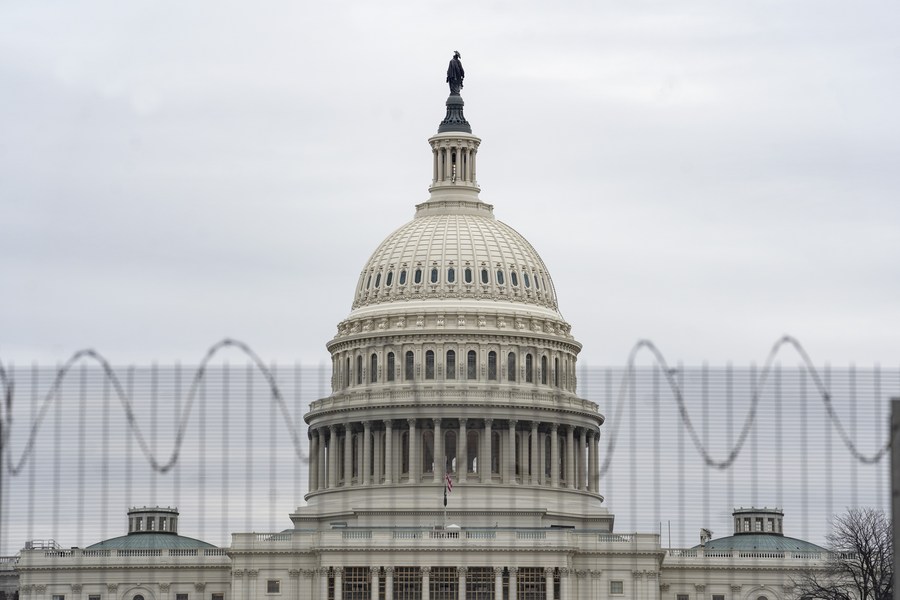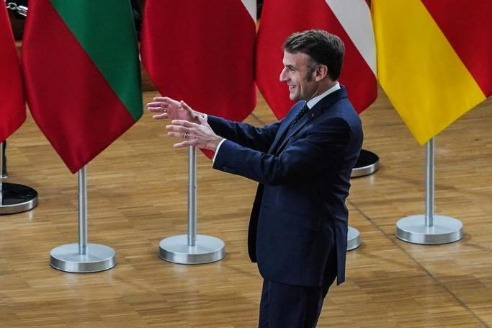Johnson, Biden to meet amid fallout from AUKUS pact


The United Kingdom's prime minister, Boris Johnson, and United States President Joe Biden will meet for talks in Washington this week, with discussions aimed at strengthening ties and building on the AUKUS trilateral security pact to develop and deploy nuclear-powered submarines announced on Wednesday.
The fallout from the new military pact is expected to be under discussion, with Reuters news agency citing analysts as saying the new trilateral deal between the UK, the US, and Australia could do "lasting damage" to the US alliances with France and Europe.
The announcement of the security deal has brought a fierce backlash from France, which has said relations with the US and Australia are now in "crisis".
Andreas Michaelis, Germany's ambassador to the UK, suggested that the new AUKUS partnership threatened the "coherence and unity of the West", noted the Daily Telegraph.
In his meeting with Biden, the prime minister is expected to "put the chaos of the Afghan withdrawal aside", with talks in the US capital likely to focus on the "rejuvenation" of relations, according to the Financial Times.
Johnson and Biden will also join world leaders at the United Nations General Assembly in New York this week, with meetings there expected to focus on climate change action and pandemic recovery.
Leslie Vinjamuri, director of the United States and the Americas Program at Chatham House, told the paper "there is no great love lost between Johnson and Biden, but at the same time there is clearly a sense of the significance of the partnership".
She added: "It will be a very forward-looking meeting. (A) certain amount of planning and celebrating AUKUS, which is a boon to Britain. Hopefully, what they can do is pick up the pieces and try to build on the momentum of the G7."
Writing in the Sunday Telegraph, Britain's new foreign secretary, Liz Truss, defended the new security agreement, which she says "will make the country safer" and could create hundreds of new jobs, including in shipbuilding and factories.
Truss, who switched from international trade secretary in a Cabinet reshuffle last week, said the AUKUS partnership showed the UK's commitment to stability in the Indo-Pacific region.
"Freedoms need to be defended, so we are also building strong security ties around the world," she wrote. "This is about more than foreign policy in the abstract, but delivering for people across the UK and beyond by partnering with like-minded countries to build coalitions based on shared values and shared interests."
Following the AUKUS agreement, Australia has scrapped plans to buy French submarines, prompting a furious reaction from French officials.
France has described the new submarine pact as "unacceptable behavior between allies and partners" and as a "stab in the back". President Emmanuel Macron has withdrawn France's ambassadors from Washington and Canberra.
France's foreign minister, Jean-Yves Le Drian, has accused Australia and the US of lying over the new security pact.
Le Drian told France 2 television that the withdrawal of the ambassadors for the first time in the history of relations with the countries was a "very symbolic" act that aimed "to show how unhappy we are and that there is a serious crisis between us".
"There has been lying, duplicity, a major breach of trust and contempt," he said. "This will not do."
Reports say the French contract to supply conventional submarines to Australia was worth $36.5 billion when signed in 2016.
Le Drian also explained why France had not recalled its ambassador to Britain.
"We have recalled our ambassadors to (Canberra and Washington) to re-evaluate the situation. With Britain, there is no need. We know their constant opportunism. So there is no need to bring our ambassador back to explain," he said. "Britain in this whole thing is a bit like the third wheel."
He said the NATO military alliance of countries from Europe and North America would reconsider its strategy at a summit in Madrid next year, and added that France would now prioritize developing an EU security strategy when it takes on the bloc's presidency at the start of 2022.
Australia's Prime Minister Scott Morrison on Sunday defended the decision to ditch the submarine deal with France.
"I don't regret the decision to put Australia's national interest first," he said. "This is an issue that had been raised by me directly some months ago and we continued to talk those issues through, including by defense ministers and others."
Defense Minister Peter Dutton told Sky News that Australia had been "upfront, open and honest" with France about its concerns.
































